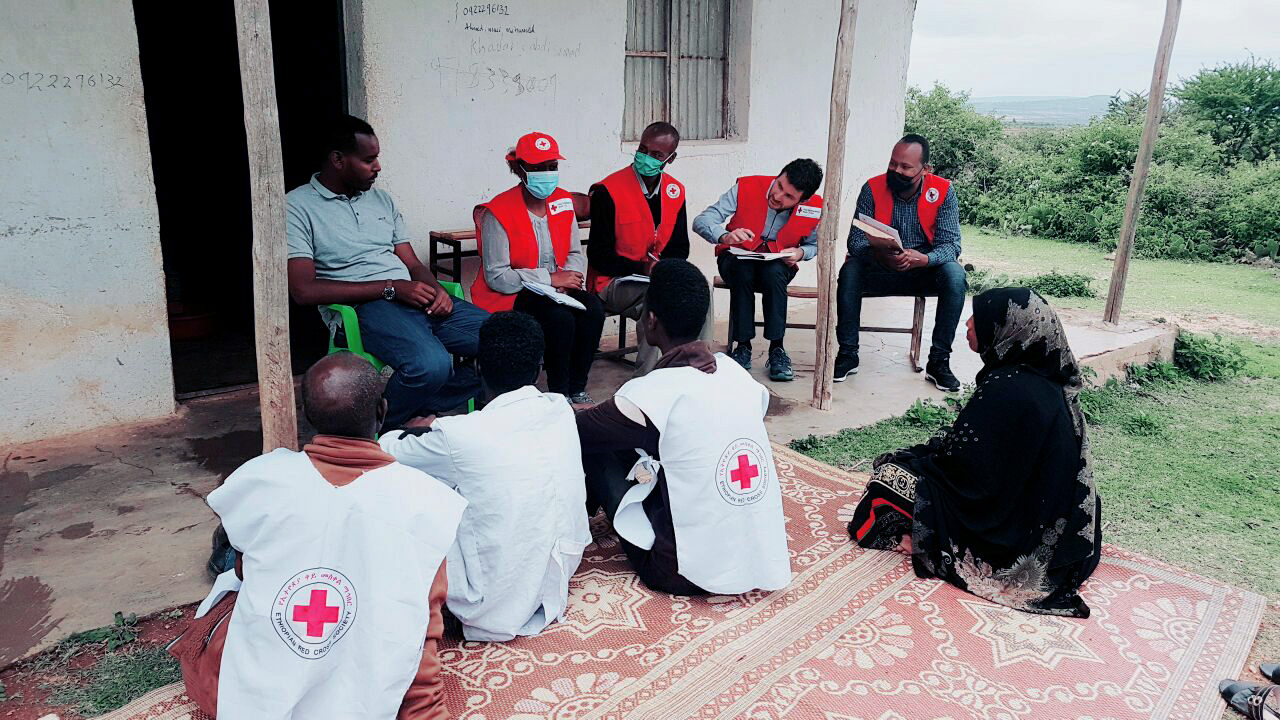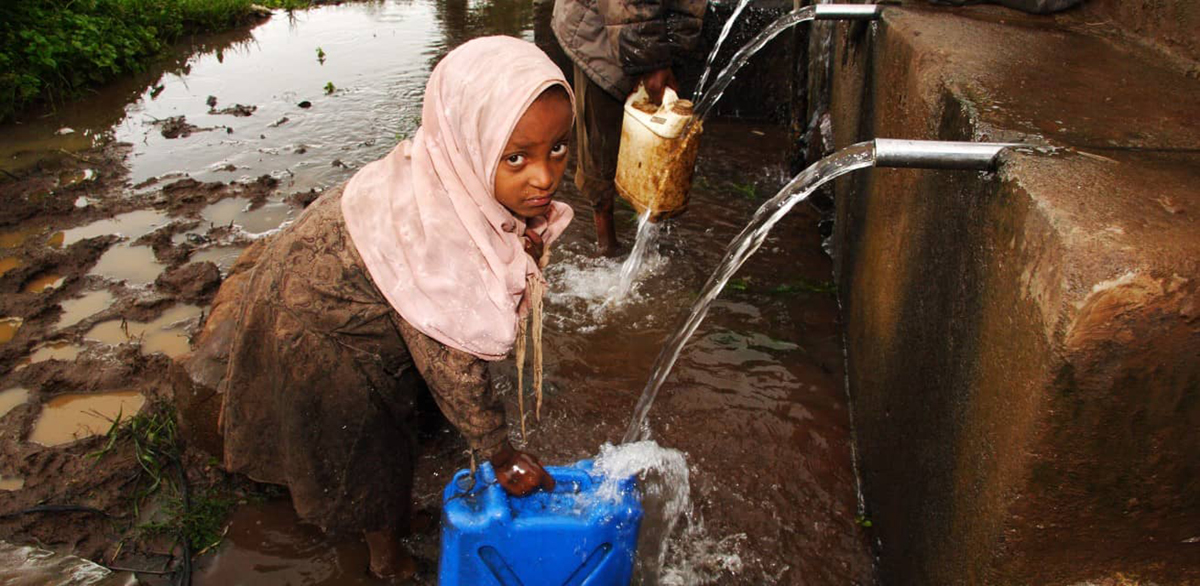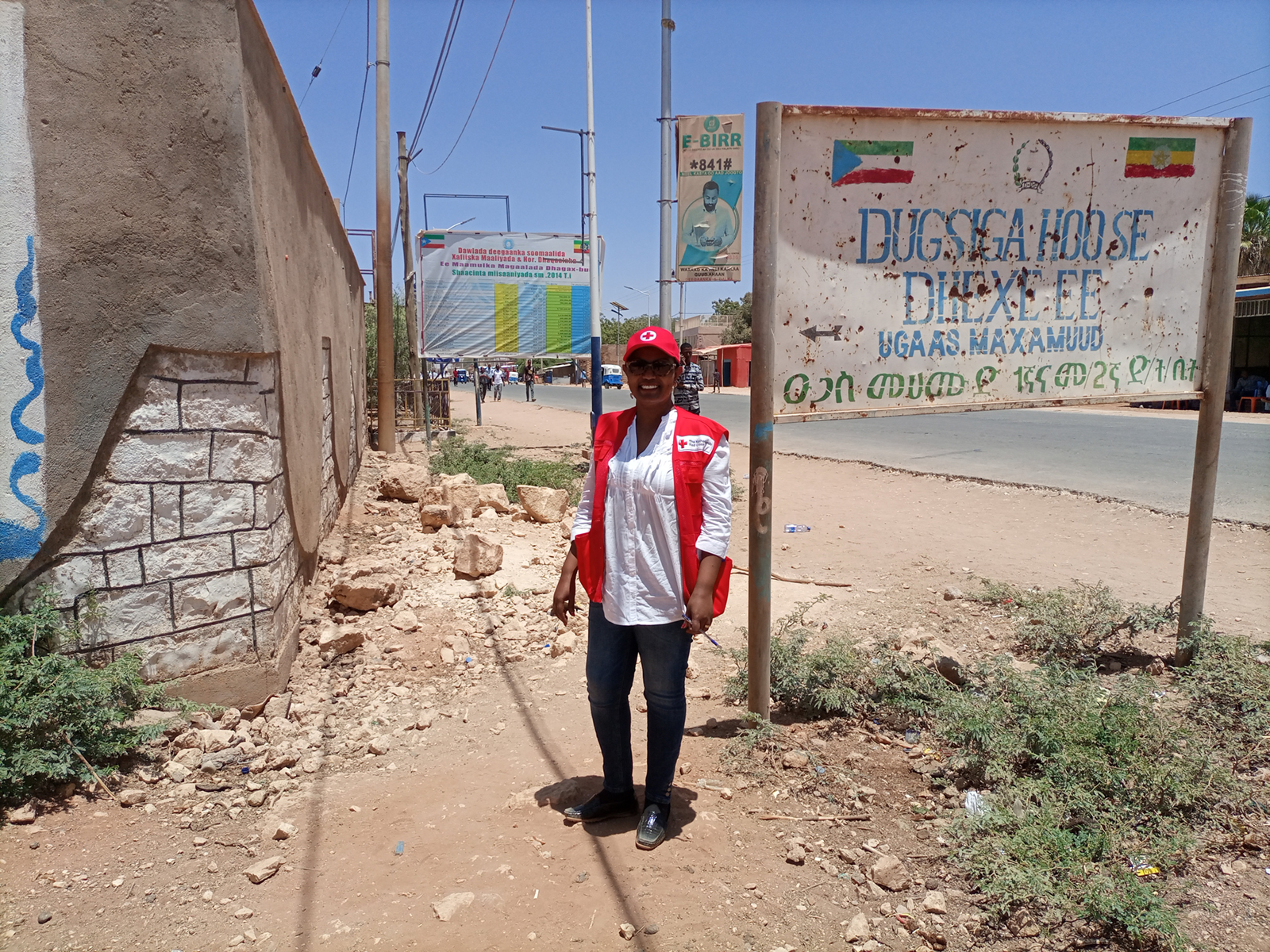Reading time 10 minutes
DROUGHT PLAGUING HORN OF AFRICA
Commitment to humanity and community
The plains of the Horn of Africa are bone-dry and barren. Over 14 million people are experiencing food shortages. How do we reach the most vulnerable? Selam Seje, public health expert in Ethiopia: "Volunteers live in affected communities themselves. They are indispensable as our eyes and ears on the ground."

Drought, floods, conflicts and locust plagues. The rural populations of Ethiopia, Sudan and Kenya are used to living with extreme conditions. Climate change is making the weather increasingly erratic. Periods of drought last longer, while rainfall causes greater flooding. Since 2020, the Horn of Africa has been bone-dry, the worst drought in 40 years. More than 14 million people are starving; 5 million children are malnourished. In addition, hundreds of thousands of cattle are dying. And these numbers will rise rapidly if water does not arrive in time.
Psychosocial impact
Born in Ethiopia, Selam Seje knows better than anyone how many hardships the people of her country have to endure time and again. As a public health expert, she has been dedicating herself to people in East Africa for more than 15 years. Selam works for the Netherlands Red Cross, but links up directly with the Ethiopian Red Cross from the country’s capital Addis Ababa. She also trains the more than 700 volunteers.
"The impact of the current drought is overwhelming," says Selam. "The rural population often has to walk 6 to 12 hours to reach a water source. Moreover, that water is sometimes not clean, which means that people who are already exhausted become sick. The psychosocial impact is also great. Parents take children out of school to help them look for water. And they marry off girls for money to live on. This disrupts the community.

Volunteers make the difference
The Red Cross helps the most vulnerable by giving them cash or food. But also by making water and water facilities accessible, guaranteeing the quality of water, providing medical assistance and ensuring better food hygiene. Selam: "We also protect vulnerable people, for example by preventing forced marriages. Volunteers play a crucial role in this. They know exactly what is going on in the community. We train them to raise awareness in the community about health, nutrition, hygiene and the timely recourse to qualified care when ill. Volunteers are indispensable in really helping the people."
Take the family where all the children under five years of age fell ill. "The parents took the sick children to a traditional healer," recounts Selam. "Two children subsequently died. Our volunteers then educated the family about the specific vulnerabilities of young children. They convinced the parents to put the other sick children in the hands of qualified medical care. As a result, those children survived. It is one of the many examples where the intervention of volunteers makes all the difference."

Prevention is better than cure
Selam started her career as a nurse in an Ethiopian hospital. But she felt she could not do enough there. "I nursed mothers and children and advised them on how to improve their health at home. But many mothers did not follow my advice. Besides, they often only came to us once they already had serious health problems. I realised that it was better to help these people in their own environment. Then you can prevent them from getting sick, instead of giving them medicines when they are sick. That's why I started to focus on public health and prevention. At the Red Cross I can help people at an earlier stage than in hospital."
Reward of the heart
Selam wants to make a difference in the lives of others. "The ultimate reward of my work is to make a difference to others together with the volunteers. That is a source of sheer joy." When Selam talks about her work, enthusiasm rings in her voice. "Passion is the inner drive to keep doing this work, no matter how challenging and demanding at times. It is this dedication that gives me the energy to keep going when I am tired. The reward for my work cannot be expressed in money, nor in the applause of others. It is a reward of the heart."
Selam admires the tireless efforts of volunteers. "Volunteers often live in rural areas that have been hard hit by the drought. They help their community with enormous dedication. I always ask why they do this work. For humanity and the community, they say. They really want to give something back to the people. They receive a lot of appreciation from their community for this. As employees, we also give them the recognition they deserve. The humanity shown by these volunteers impresses me deeply.

Resilient to climate change
The question that occupies Selam’s mind is how the population is to become self-reliant in the future. "The Red Cross is working on solutions to make the population more resilient to climate change. Water management is a key issue here. For example, we are working on improving the condition of the soil, protecting it from flooding and sowing crops that are more resistant to extreme weather. We also collect rainwater and drill wells. The Red Cross really makes a difference in this part of the world. At the same time, the climate continues to change and we face great challenges. But my optimism gives me energy, you have to keep believing in the future. My heart is with the community and that is where I choose to invest my energy."
